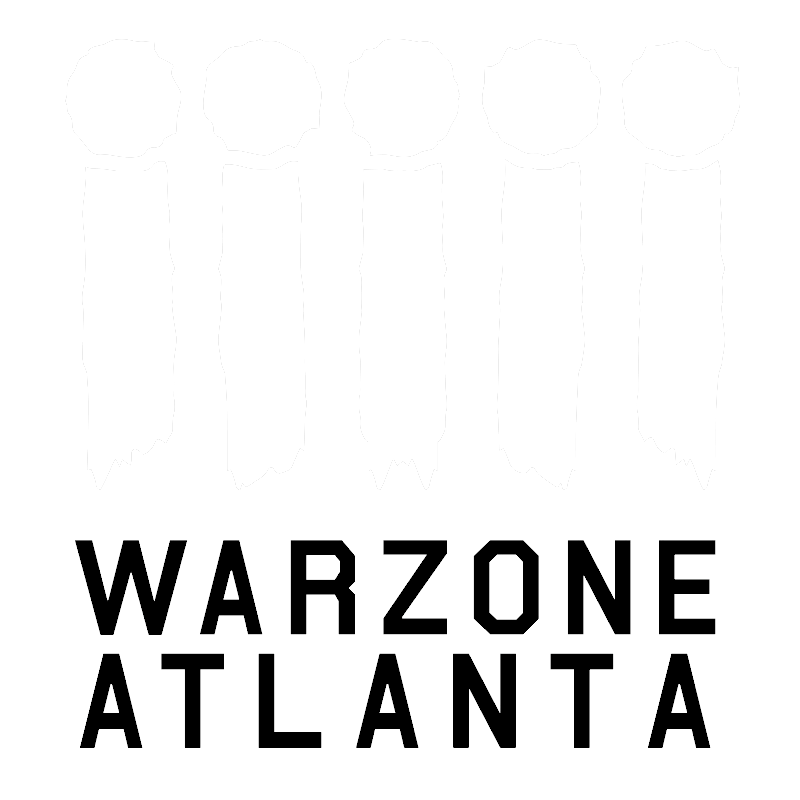Since Warzone: Atlanta’s inception in 2015 The General Staff has always wanted the focus of the event to include every aspect of the Warhammer 40k hobby. There are events where you can win the whole event by making the best strategic decisions and having favorable matchups as you play through your rounds but TGS wanted Warzone: Atlanta to include that and more.
Why bother?
That player may have made the best decisions, built the best list, and faced favorable matchups but what did their army look like? Airbrushed gradients of a single color? Primer plus random bits painted random colors to meet a “3 color minimum”? How were they as an opponent? Did they argue every other interaction? Hide dice rolls behind buildings? Belittle their opponents? It’s not to say that every person who wins an event did any of these things but we’ve all seen it happen to one degree or another.
TGS wanted to create a way that rewarded a player for embracing the game as whole and we have worked every year to nail down a system that quantifies what we consider to be the three main factors of which each have their own trophies: Battle, Paint, and Sportsmanship.
Battle has almost always been the easiest factor to quantify. Whether you go off of a Swiss score, battle points, or something like win path the data is readily available to mash together and see who did the best.
Paint can be a bit of a struggle. You wouldn’t think so but creating a rubric that people can understand your expectations and then using that rubric to score each individual in a 100+ person event can be difficult to convey and even more difficult to score with the man power available without someone feeling like they deserved a higher score or a box ticked that wasn’t ticked. In the past several years TGS has moved to a more guidelines approach rather than a rubric to ease some of the pressure off of both players and staff.
What does this mean for judging a player’s army? Beauty is in the eye of the beholder. TGS staff know what qualifies an army to be Battle Ready or Parade Ready and ultimately we will come to a consensus of who deserves to be on the Judge’s Podium which is where the top eight Parade Ready armies will be evaluated for what they have accomplished and sometimes, for what they have not.
Sportsmanship has always been the most difficult factor to quantify of the three. A player cannot judge themselves of good or bad behavior so it must be up to the opponent to judge if they believe their opponent behaved in a sportsmanlike way or not. This means that a player’s Sportsmanship score must be dependent on the disposition/bias/energy level/memory of their opponent each round. Not to mention the players who will tank their opponent’s score to troll or to keep them out of Imperial Envoy (Best Sport) or for Best Overall and the opponents who will simply give the highest marks to each player they face!
So what is an Organizer supposed to do? Sportsmanship is the most important factor to a successful event and a successful community so it must be quantified and rewarded somehow. In the past TGS has implemented questionnaires that would be filled out by each opponent after every round. This adds some work to the players at the end of a round where they are already looking to move to their next table and next opponent. It also creates an incredible amount of bookkeeping for the Organizers to not only keep track of the scores that have been submitted but also for the scores that haven’t been.
TGS has also tried the Best Opponent approach where at the end of each day players write down who of their opponents that day was their favorite and players were scored by how many votes they received. This is less work on the players and less work on the Organizers. The downfall of this approach is that many players don’t remember their opponents past the last game they just played! An opponent truly had to stand out in order to receive multiple votes in a day which occurred each year but how many players were shorted a vote simply because their opponent couldn’t remember their name?
For 2023, TGS has moved back to a End of Game Questionnaire that we hope will be minimal effort for all parties and more accurately find the players who truly embody the Spirit of the Game.
Combine these three factors together and find the player who can score the highest together and we should have the player who deserves to be rewarded with the Emperor trophy.



